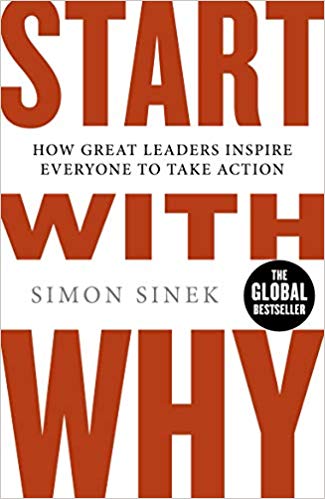
Reading “Start With Why” by Simon Sinek at the moment and am struggling a little bit. I am only half way through and hope I can accept, or reconcile, the hypothesis put forward by Sinek.
His proposition is that people do not buy what you do, they buy why you do it. He points to the rabid fans of brands such as Apple and Harley Davison as evidence of the effectiveness of brands such as Apple who start with why.
Steve Jobs claimed that marketing was about values, about what you stand for, what you believe in, who you are as a company. I’ve written about that here.
But I am having a hard time reconciling Sinek’s view with that of Jobs because I am not convinced the two things-starting with why you do what you do and what you believe in-are necessarily the same thing.
For example, you may do what you do because you need the money, you need food and shelter, you have a family to provide for, bills to pay, mortgage, and so forth. You may or may not be in the lucky position to be doing something you love. If you don’t love it you may well be doing work or selling products that you don’t necessarily believe in with any great conviction.
Sinek gives his own example when he is asked why he does what he does that he wants to inspire others to do great work, or something of that nature. But surely he would not do this work for free? Surely the motivation and necessity to earn money is a crucial reason why we all do what we do.
So, I believe there is two whys. In my case I can identify:
- I work in order to earn a living, pay for food and shelter, and provide for my loved ones
- I do the type of work I do-create a lot of free content, blog posts, websites, videos- to help people make better decisions and ask me to help them.
But these are two very distinct whys.
I can say I create all the free content on my websites, EmploymentRightsIreland.com and BusinessAndLegal.ie, and on my YouTube channel to help people make better decisions with the legal or business problems they face.
But I could also say I do it to win clients, and ultimately generate fees and revenue. I believe both of these “whys” are valid and legitimate.
At the moment, however, I am only half way through the book so I may come back here and update this blog post when I have finished the book.
Update
I have finished this book now and I must confess a slight sense of disappointment and the question, for me, arises: “is that it?”
This thesis advanced by Simon Sinek appears, after listening to this audiobook, to be a theory in search of facts or case studies to support it, rather than the facts, evidence, and data leading one to an inescapable conclusion about the core of Sinek’s teaching.
The case studies he does refer to are limited to a small number of companies who have built a values based brand-companies such as Apple and Harley Davison.
Sinek’s thesis falls flat, I believe, when subjected to closer scrutiny and an attempt to fit the theory to a company who does not enjoy the same values based philosophy as Apple or Harley Davison. For example, Ryanair. Ryanair appears to have built its success on cheap tickets and reliability. It has treated its passengers with a certain degree of disdain down through the years but could always get away with it as long as it could carry the ordinary Joe to any part of Europe for less than 50 euros.
It’s not clear to me what Ryanair’s why is, in the context of the theory advanced by Sinek.
Sinek also refers to workers in, for example, Apple being driven by a greater sense of purpose, as espoused by Steve Jobs and the slick marketing to position its products for those who “think different”.
But I know a man who works in Apple in Cork and he works on the assembly line or in a blue collar role in the warehouse/factory. And his why is not because he believes in changing the world or thinking differently; his why is to pay the mortgage and provide for his family.
Conclusion
In conclusion I believe what Sinek puts forward has merit and validity but it does not tell the whole story. Nor, in my view, does it tell the story Sinek advances as an explanation why some companies succeed, some fail, some leaders command authority and zealous, committed followers and others don’t.